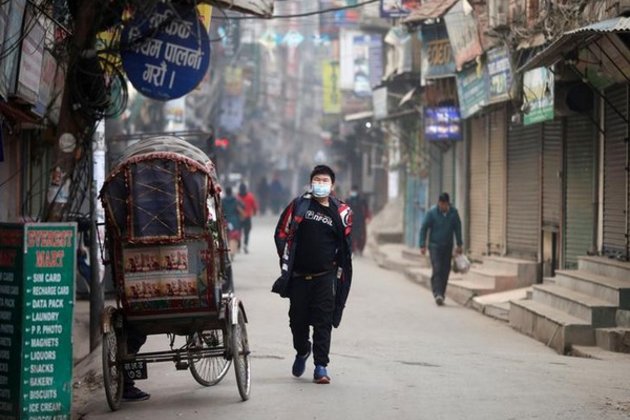Rising expenses and zero revenue have forced Om Prakash Sharma to shut down his factory that makes polypropylene yarn used to manufacture socks.
After 15 years, Sharma’s firm DD Industries bit the dust as the virus lockdown and restriction orders took their toll. His factory in Chhatapipra, Bara has remained shuttered for five months, and he says he is no longer able to pay his 25 employees, utility bills, bank loan and taxes.
“Schools and colleges have remained closed for nearly six months, and demand for polypropylene yarn has dried up,” he said, adding that unsold inventory had been sitting in his warehouse for eight months.
“The factory was already facing hard times following the government’s policy to allow imports of readymade socks and raw materials at 5 percent duty. But it was my only source of income so I fought to keep it going,” he said. “The current situation has left me with no option but to pull down the shutters.”
The monetary policy issued nearly two months ago had brought cheer to micro, small and medium enterprises as it addressed many of their demands, and the entrepreneurs were urging the government to implement it right away.
But its implementation was delayed and the virus outbreak brought stay-home orders which knocked businesses to the ground.
“The implementation part is weak,” said Umesh Prasad Singh, acting president of the Federation of Nepalese Cottage and Small Scale Industries.
“As the monetary policy announced for this fiscal year supported the sector, we were very hopeful. But it did not happen as expected,” he told the Post. “It has been nearly two months since the industry started sinking gradually,” he said.
As per the policy, export and troubled industries, as well as other sectors, would get special refinancing facilities at a maximum 3 percent interest rate, while micro, cottage and small industries would get credit at a maximum 5 percent interest rate.
As part of the relief package, the policy extended the loan repayment deadline by six months, nine months and one year, depending on the degree of impact on the particular sector as the central bank sought to ease the pain caused by the pandemic on businesses.
“But not a single entrepreneur has been able to get refinancing service or new financing service as per the monetary policy,” he added.
“The provisions in the monetary policy have not been implemented. Banks have been saying that they will provide the service but nothing has been done,” he said.
Due to the lockdown restrictions imposed in many parts of the country, entrepreneurs are having a hard time and only a few micro, small and cottage industries are in operation, he added.
Entrepreneurs have no income, but government taxes and bank interest payments are piling up, so there is no option for them but to close down, he said.
“Instead of providing relief and creating an encouraging environment for entrepreneurs who are trying to survive, the government is only adding to their stress,” he said.
According to Singh, around 30 percent of the micro, small and cottage industries remain closed, and entrepreneurs have started looking for other livelihoods.
“If the situation continues for another two months, 90 percent of the micro, small and cottage industries will fold,” he added. Only 2-4 percent of the factories are in operation, he said.
“We will talk with the government; and if it offers relief, we will gradually re-start operations, otherwise there is no sense in staying open just to pay taxes,” he said.
“The government had announced waiving rent and electricity charges, but this has not happened. Entrepreneurs have to pay their employees, raw materials are getting damaged, and the machines are starting to break down. How can entrepreneurs run their businesses if the government does not provide relief,” he said.
Entrepreneurs said the government wasn’t not looking into their problems as it had its own priorities.
Tens of thousands of micro, small and medium enterprises which provide jobs to millions of people have not been able to re-open due to lack of funds. Entrepreneurs said it would be difficult to resume operations unless they get loans through the refinancing provision announced by the monetary policy.
Sharma was hoping that the government would come with supportive measures to address their problems. “I have decided to close the industry by selling the goods in stock and clearing outstanding payments,” he said.
Source: Kathmandu Post

